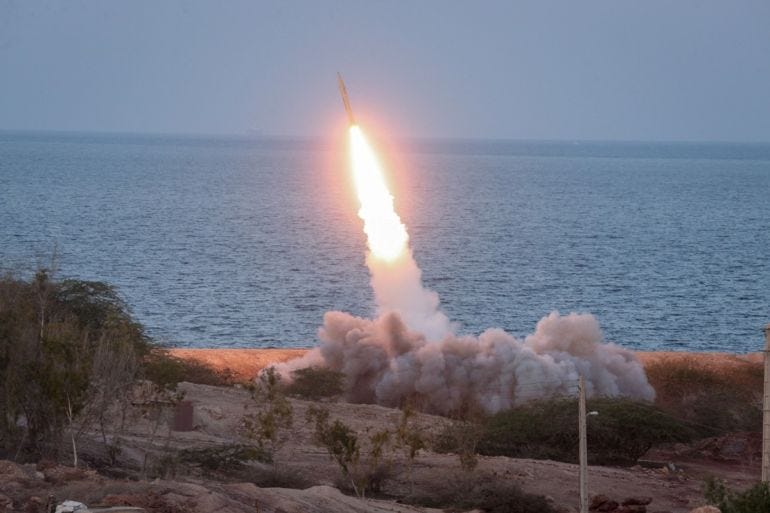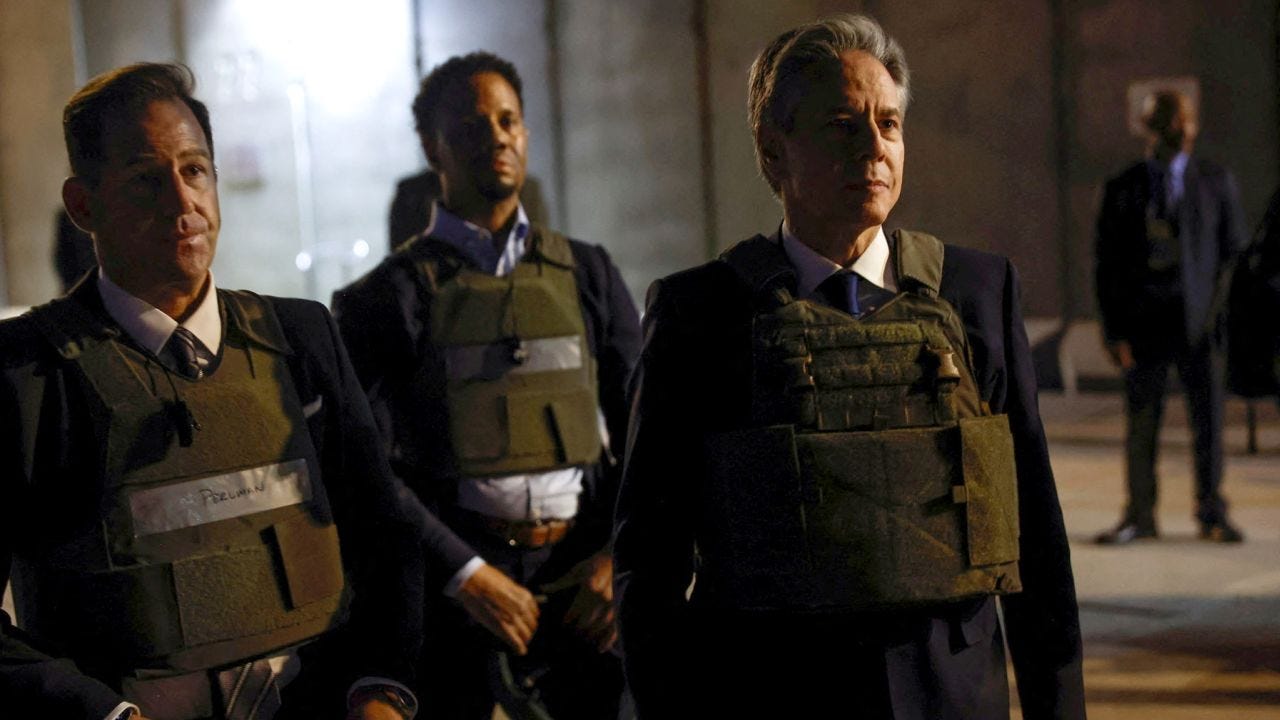NPR host Ayesha Rascoe devoted six minutes this morning to a subject that should be sending shivers down the spines of those who have them on Capitol Hill, as few in number as spines may be among House Republicans. She interviewed Emile Hokayem, Director of Regional Security at the International Institute of Strategic Studies in London after remarks were broadcast last Wednesday by Ghazi Hamad, one of the planners of the October 7 Hamas attack on Gaza, that his group will attack Israel “again and again” until “that country,” meaning Israel, is wiped off the face of the earth. “The existence of Israel is what causes all that pain, blood and tears,” Hamad told a Lebanese interviewer. “It is Israel, not us. We are the victims of the occupation. Therefore, nobody should blame us for the things we do. On October 7, October 10, October 1,000,000 — everything we do is justified. There will be a second, a third, a fourth [attack] because we have the determination, the resolve and the capabilities to fight,” Hamad claimed. “We are called a nation of martyrs and are proud to sacrifice martyrs.”
The interview with Hamad was followed by televised remarks in Beirut by Hezbollah leader Hassan Nasrallah, who threatened that his group would escalate its fighting with Israel along the Lebanon-Israel border, according to an account by ABC News on Friday. Nasrallah declared that Hezbollah is “prepared for all options and we can resort to them at any time. Some say I’m going to announce that we have entered the battle," Nasrallah continued. "We already entered the battle on Oct. 8.”
In the six minute interview on NPR’s “Morning Edition,” the phrase “regional war” was used twelve times. That’s two times a minute. Rascoe wanted to know from Hokayem, an expert on the Middle East, if the saber rattling by the leaders of both Hamas and Hezbollah was a warning that the conflict between Hamas and Israel will “spill over” and involve other countries in the region.
Hokayem argued that Nasrallah had not indicated that he would “mobilize Hezbollah for an all-out regional war. It does not mean that a regional war will not happen. Much will depend on the trajectory of the fighting inside Gaza. It also does not mean that Hezbollah may not reconsider its posture.”
Iran came into the discussion as well. According to Hokayem, “Iran itself is unwilling to risk a regional war. It worries that if it does so, it would expose Hezbollah, which is its most formidable instrument of punishment and deterrence against Israel, while it should be preserved for a war that would threaten Iran's or the Iranian leadership's own existence.”
But if a regional war happened, Rascoe asked, what countries might become involved? “It would be quite complex,” Hokayem answered. “Those that would be primarily involved would be Israel, Iran, Syria, the U.S., but in addition to that, you would have an array of militias in Iraq, Yemen, Syria and Lebanon that would likely jump into the mix. But the point is that if a regional war starts in earnest, there will be surprising effects.”
Apart from Israel’s existence, which would be threatened by a regional war in the same way it was in 1967 and 1973, the real danger would be the effect an expansion of the Hamas-Israel war would have in the U.S. That’s why Secretary of State Anthony Blinken has been jack-rabbiting his way across the Middle East for the last few days, first flying to Israel to plead with Netanyahu to allow a “pause” in the fighting for humanitarian aid. Then Blinken left for Jordan and then in a surprise move, he flew to Baghdad to meet with Prime Minister Mohammed Shia' Al Sudani of Iraq. In early October, American forces in northern Iraq shot down three armed drones that were aimed at U.S. bases. Later in October, U.S. Patriot batteries shot down a missile aimed at a U.S. diplomatic support center near the Baghdad airport. Blinken and his aides were on a diplomatic mission to meet the Prime Minister of Iraq, and they were dressed in bulletproof vests as they waited to be picked up by a helicopter at the Baghdad airport last night:
In another incident on October 19, a U.S. warship in the northern Red Sea shot down three cruise missiles and several drones aimed at Israel by Houthi rebels in Yemen.
It’s no wonder the words “regional war” were used so many times this morning on NPR. The Republican-controlled House can’t even pass a “clean” 14 billion dollar bill to support Israel, which is now in the second month of its war with Hamas, and they haven’t even taken up the 40 billion President Biden wants for military and humanitarian support for Ukraine.
That’s not even to mention the possible government shut down we face in less than two weeks if the House does not pass the annual appropriation bills that fund the government.
A lot can happen in the tinderbox war between Israel and Hamas in the next 12 days. Blinken knows, and President Biden knows, that we’re not just dealing with hostile nation states that surround Israel. There is Hezbollah in Lebanon and Syria. There are remnants of ISIS in Syria. There are the Houthis in Yemen.
And there are the Russians in Ukraine. Putin is sitting back there in Moscow rubbing his hands together with glee as political dysfunction in the U.S. threatens to weaken Ukrainian forces fighting for the survival of their country. And now that Putin has killed Yevgeny Prigozhin, if you don’t think he has taken over his Wagner mercenaries is using them in places like Yemen where they can do his war against Ukraine some good by distracting the United States, you’ve got another think coming.
Twelve mentions and counting of a regional war in the Middle East on NPR this morning.
Watch this space.





Correction: "dressed" for "dress" in the graf about Blinken and his aides at the Baghdad airport. h/t Jill Krementz.
Biden is correct—the elections in this coming year will determine our future (or fate) for several generations. As a boomer with GenZ daughters, I and they must vote.